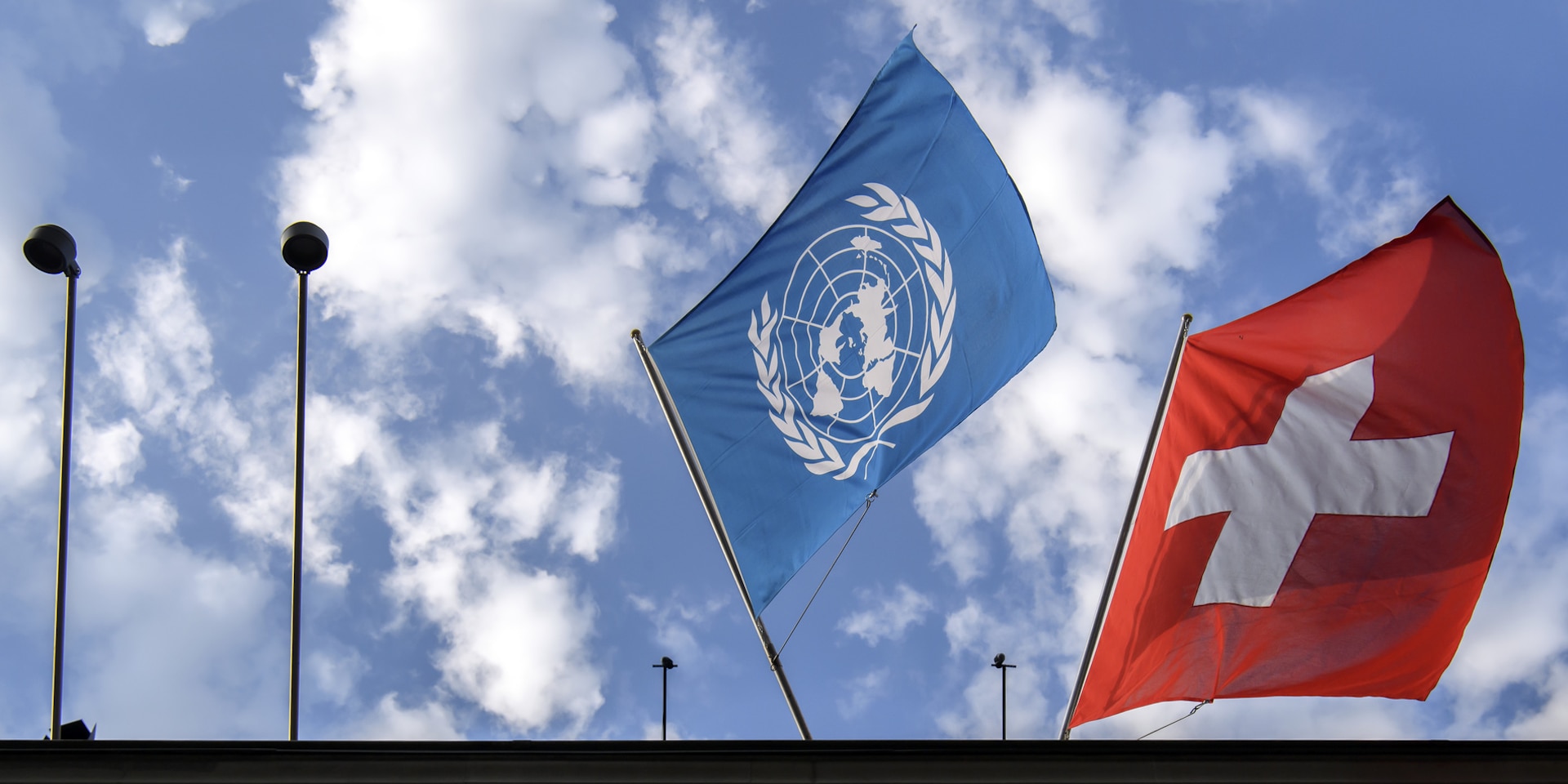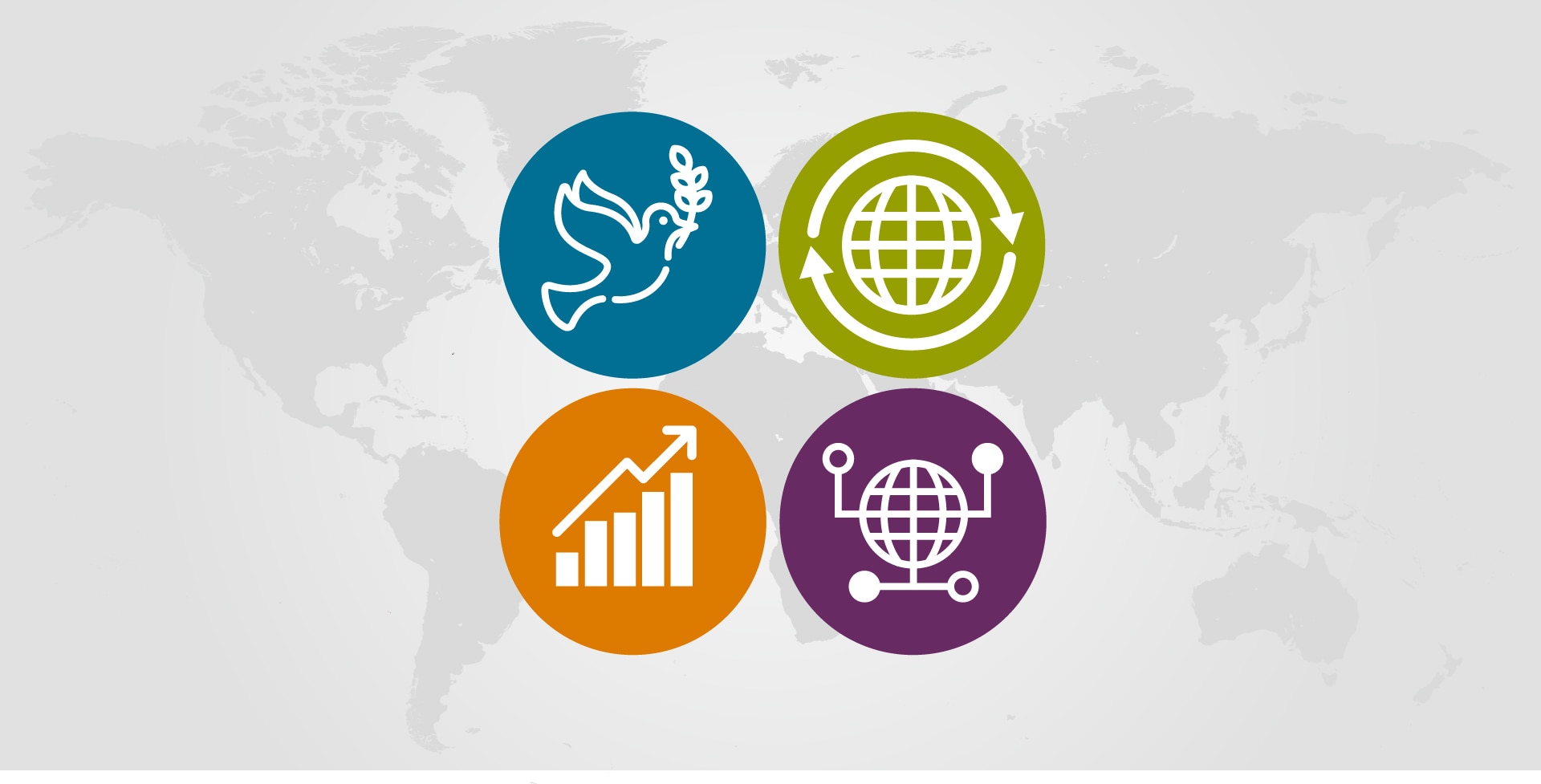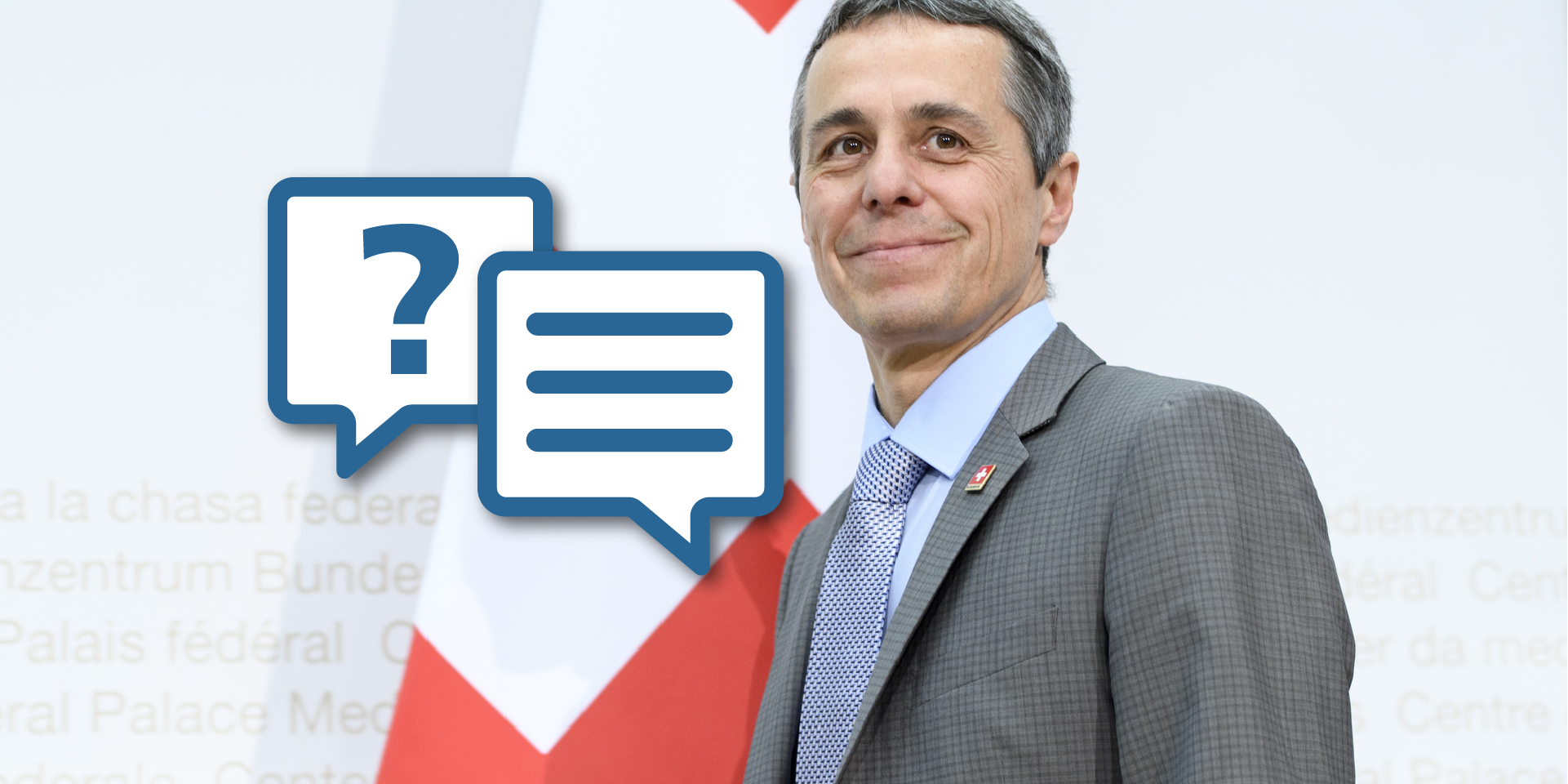Connecting Swiss women peacebuilders
Strength lies in numbers. An FDFA initiative will bring together Swiss women diplomats and international security experts in a network to advance women's participation for peace. Like war, peace is not a male preserve.
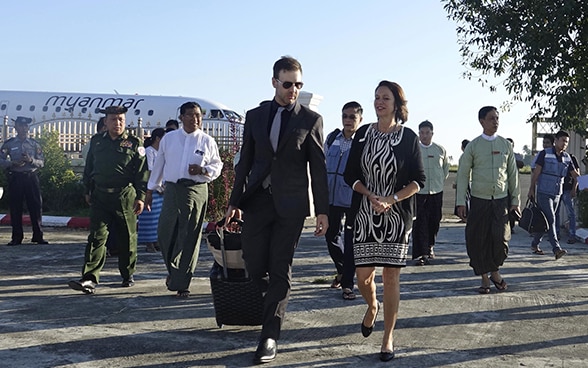
Through their work as chief mediators, Swiss women help to further peace. Christine Schraner Burgener (pictured) is a Swiss diplomat and the UN Secretary-General's Special Envoy to Myanmar. © Keystone
The Federal Department of Foreign Affairs (FDFA) has chosen International Women's Day, on 8 March, to launch the 'Swiss Women in Peace Processes' (SWiPP) network. The 15 Swiss women who will be part of the first iteration of the network come from different professional backgrounds, such as the FDFA and non-governmental and international organisations, and are all involved in peacebuilding efforts around the world.
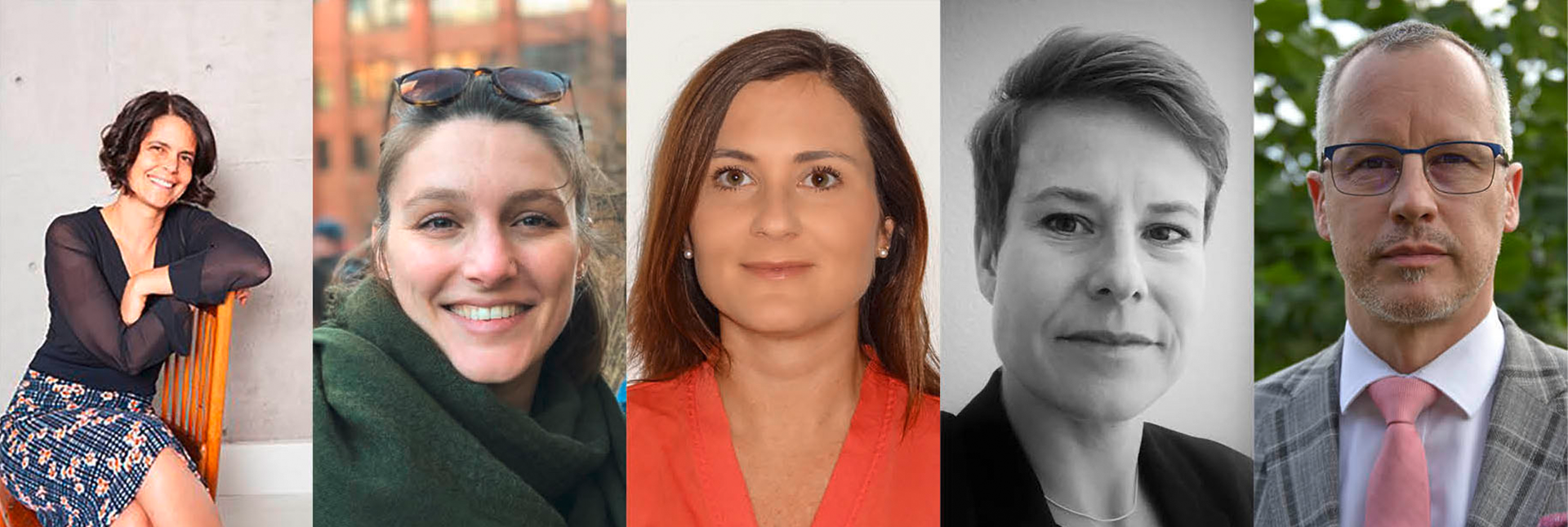
Strength, mutual support and inspiration
The number of women working in international peace processes is very low. Networks are an excellent way to create opportunities for women and raise their visibility. As Sarah Koch, a human security advisor at the Swiss Embassy in Cameroon and a participant in the first iteration of SWiPP, explains, "Peace processes are complex. They address a wide range of subjects and have multiple dynamics at play. Their success depends on the many different actors involved being able to work together. Likewise, progress on certain issues requires a shared effort, mutual support and inspiration. Networks are a really good instrument for this."
The network will be structured around a digital platform as well as an advisory body ('sounding board') comprising both men and women. This will make it easier to arrange exchanges, experience-sharing and guest lectures. For Sanna Vögeli, one of the initial 15 members and a Mediation Programme Officer with swisspeace, "The network opens up opportunities for us like peer coaching, professional development, career planning and intergenerational exchange on issues that specifically affect women working in peace processes."
The pilot project will run for 18 months. At the end of this phase, SWiPP should be scaled up.

Women absent from 7 out of 10 peace processes
Women are minority participants in efforts to end wars and conflicts and bring about a lasting peace. According to a study by the Council on Foreign Relations, between 1992 and 2019, women constituted, on average, 13% of negotiators, 6% of mediators and 6% of signatories in major peace processes around the world. The think tank also found that few women participated in leadership roles as negotiators, guarantors or witnesses.
Peace through inclusion and community engagement
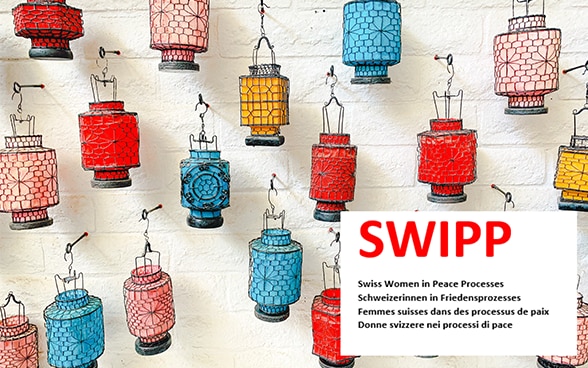
SWiPP meets a real need. Women are by nature no more peaceful than men. Yet, they play a decisive role in peace processes which mobilise all sections of society.
For SWiPP member Sanna Vögeli, a diverse mediation team is an important component of any process that seeks to build a sustainable peace. "Diversity enables the team to interact with peace process participants in a variety of ways, cultivate different types of relationships and communication channels, share our views and experiences with one another and include other perspectives."
Another SWiPP member is Deborah Schibler, who currently works as a peacebuilding advisor with the Organization of American States Mission to Support the Peace Process in Colombia (MAPP/OAS). She notes that the approaches which women typically adopt can be more conducive to progress. "Studies have found that women tend to focus more on reconciliation, reconstruction and transitional justice, and purposefully seek out lasting solutions. "Not only do women experience war differently from men, they tend to see things differently, too. Their approaches to problem-solving often break with traditional conflict management."
Fellow SWiPP member Sara Hellmüller is a researcher and lecturer at the Graduate Institute of International and Development Studies in Geneva. She has participated directly in several peace processes (Darfur, Libya, Syria) and has carried out academic research on the subject. According to Hellmüller, women participate in peace processes at multiple levels.
"They participate as members of the negotiating parties, as a part of civil society or as mediators. It is important that we accept and acknowledge the fluid and overlapping nature of these identities and avoid pigeonholing women. Added to this is the fact that few chief mediators in international peace processes have been women. More often, they serve in mediation support roles. While we should not downplay these roles, it is important that women have access to leadership positions as well."
"Peace is not divisible"
Men also have a role to play in the women mediators network. Simon Geissbühler is a member of the SWiPP Sounding Board and is head of the Peace and Human Rights Division at the FDFA. He supports the initiative and believes in the complementarity of women's and men's participation in peace processes.
"Peace is not divisible. Women are underrepresented in formal peace processes, both as mediators and lead negotiators. Yet, they are often heavily involved in conflict prevention and resolution at an informal level. The fact remains, however, that the inclusion of women on an equal footing is a rare occurrence when it comes to conflict resolution and sustainable peace efforts."
Switzerland as peacemaker
The Swiss Women in Peace Processes Network is part of a wider community of regional women mediators networks, whose members include Fem-Wise Africa, Women Mediators across the Commonwealth, the Mediterranean Women Mediators Network and Nordic Women Mediators.
Switzerland is deeply involved in mediated peace talks and peace process support. By dint of its history and foreign policy, Switzerland is considered to have many of the attributes needed to be a credible mediator: no colonial past, a democratic system of government, linguistic diversity, pluralism and a long tradition of neutrality.
Swiss women have a meaningful role to play in peace mediation. SwiPP member Sanna Vögeli recalls that "As a Swiss person, you are frequently held in high regard for your neutrality and willingness to seek compromise. These are the same values that Switzerland is known and appreciated for around the world. Our consensus-based political system, cultural and linguistic diversity and humanitarian tradition are foundational to the credibility of Switzerland's mediation role in peace processes worldwide."
Although it is still rare to see women involved in efforts to end wars, resolve conflicts and build lasting peace, Geissbüler points out that quite a few Swiss women have made a name for themselves in these fields, and that the next generation is ready to take up the baton, "I am optimistic for the future given the talent pool that is out there, and the engagement and expertise of the many, often younger, Swiss women mediators working today."
A concrete step towards the fulfilment of Switzerland's obligations
The SWiPP network constitutes a tangible contribution towards the implementation of UN Security Council Resolution 1325 on Women, Peace and Security and is fully consistent with Switzerland's Foreign Policy Strategy 2020–23.
SWiPP will further enhance the reputation and credibility of Switzerland as a pre-eminent peacebuilding authority. This is an essential quality for a country which is seeking a seat on the United Nations Security Council for the 2023–24 period and has made the promotion of the Women, Peace and Security agenda one of its foreign policy priorities.

